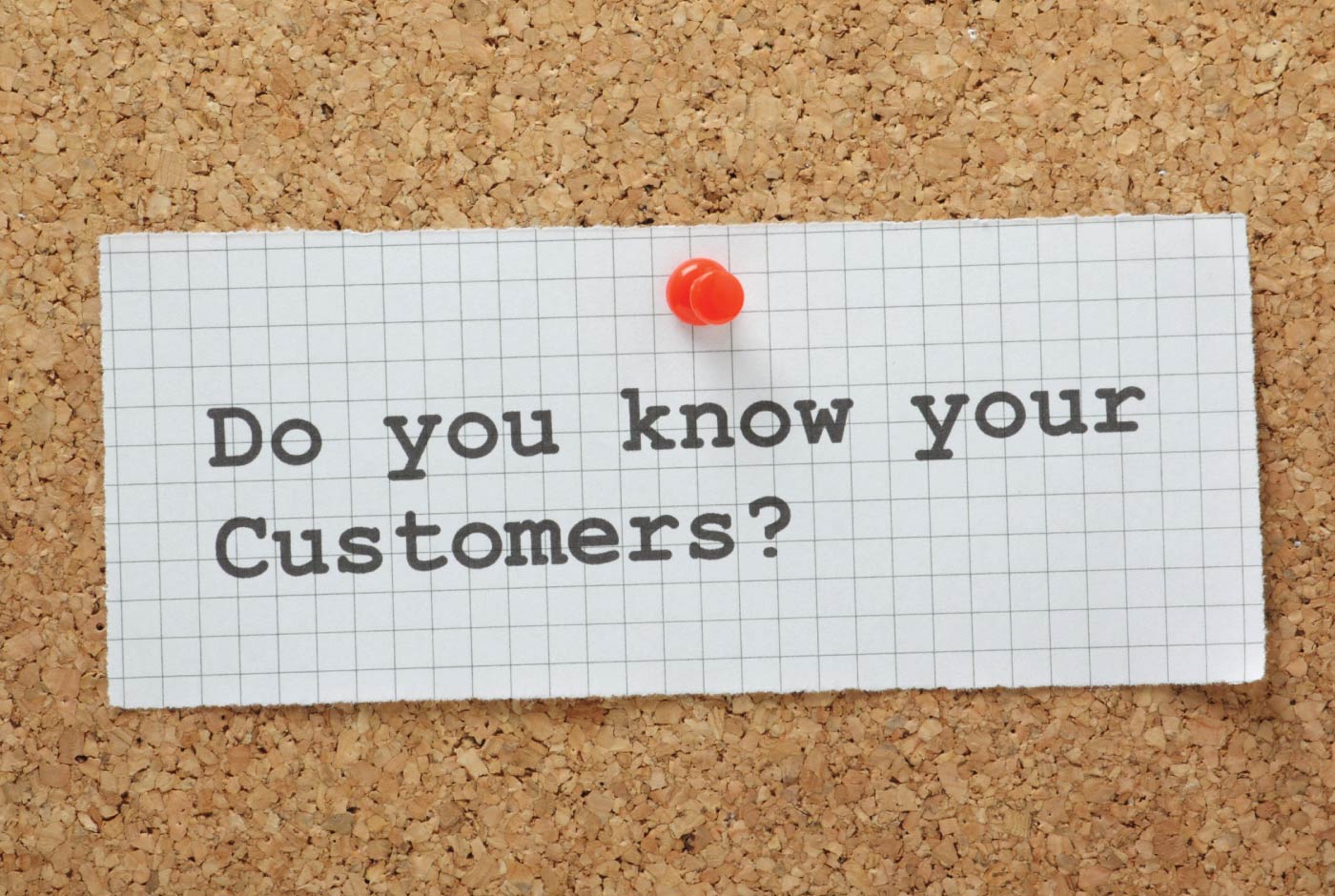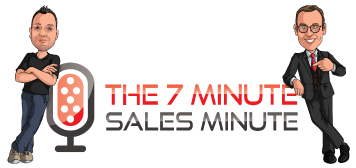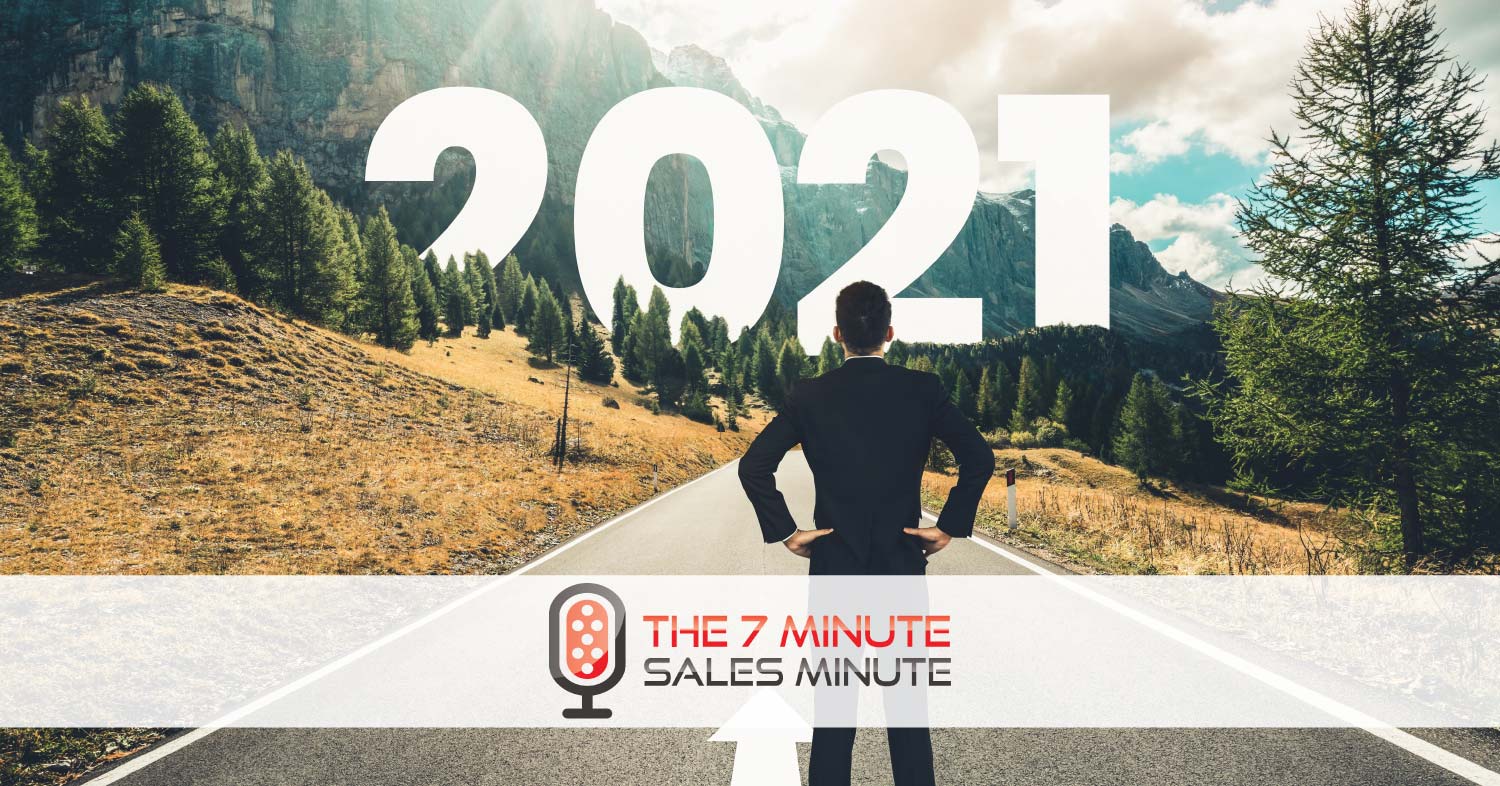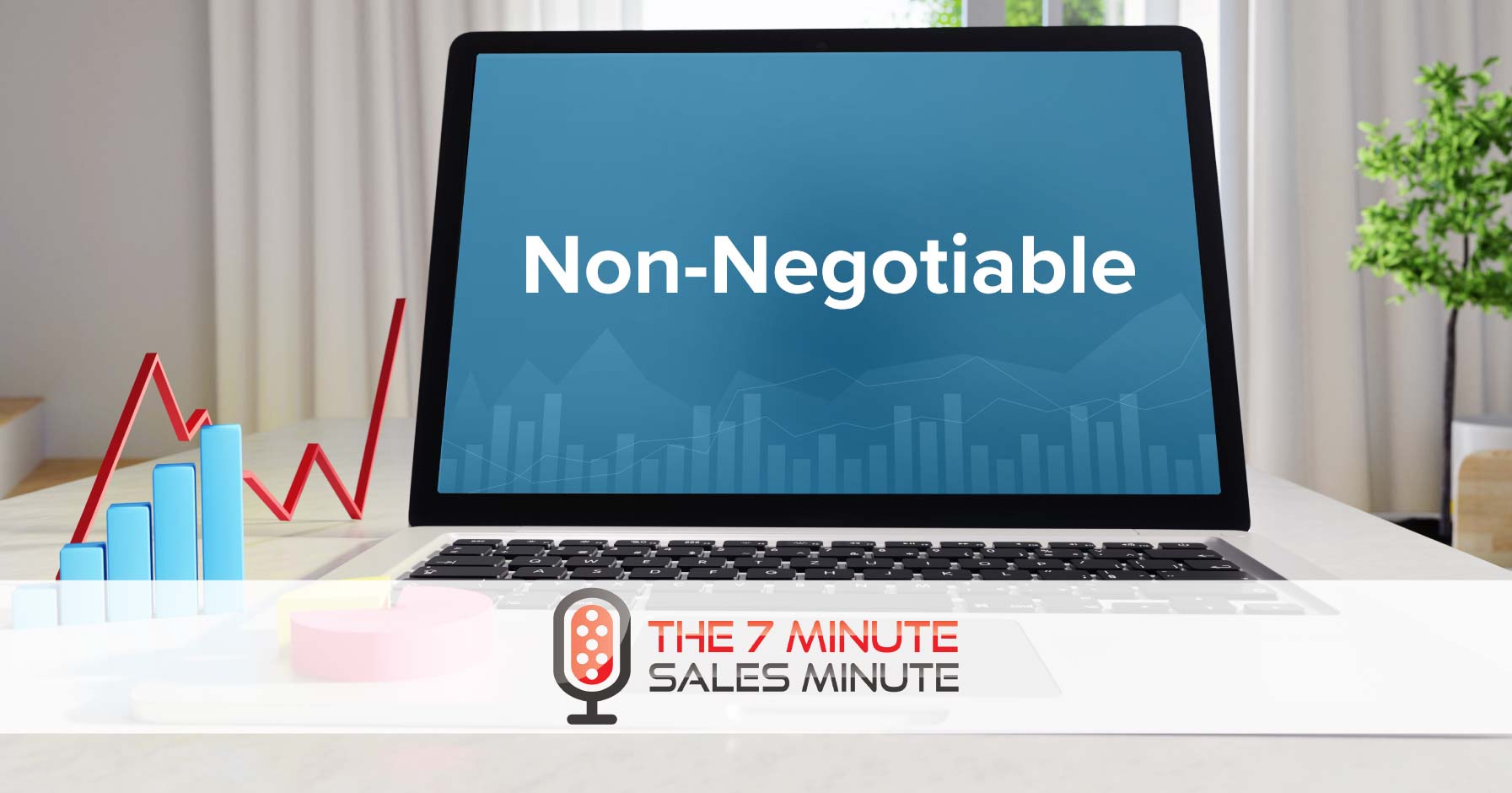
In this episode, the guys speak about being prepared and doing your research before you pitch.
Going in blind is bush league and with all of the information at your fingertips now, you don’t have to.
Be good scout and always be prepared!
Read the full transcript
Scott Fishman: I’m Scott Fishman.
Jon Dwoskin: I’m Jon Dwoskin.
Scott Fishman: This is the Seven Minute Sales Minute. Welcome, everybody.
Good morning, Jonathan. How are you doing?
Jon Dwoskin: Good morning, Fish. How are you? How are you?
Scott Fishman: I’m doing great, man. My head is a little swollen this week. It’s great. I’ve done two interviews.
Jon Dwoskin: (Laughs) Tell me about the interviews.
Scott Fishman:
Well, one was for this amazing new podcast. It sounds very similar to this podcast on the audio side. I was a guest on that.
Jon Dwoskin: It was fun interviewing you. It was weird. It was challenging interviewing you because we usually go back and forth, but this was an interview. It was fun to do, and you did a great job. I’m excited for everybody to hear.
Scott Fishman: Thank you. You’re a hell of an interviewer, my friend.
Jon Dwoskin: Thanks, Fish.
Scott Fishman: Then, I was interviewed for a magazine we have at my company, Quicken Loans, that basically profiled me for everything I’ve done as far as the podcast, the books, the blog, all this stuff. So that was really fun, too.
Jon Dwoskin: And that’s a big deal. I know you’re kind of glazing over it, but that’s a big deal to be chosen out of, I think they have, 30,000? I could be wrong by give or take a couple thousand employees. To be picked out of that is a complement. Good job, man.
Scott Fishman: Thank you. Thank you very much. So, we’ve got a great topic for you today, folks. You’re going to like it, I think.
Jon Dwoskin: Do tell. Do tell.
Scott Fishman: What we’re going to talk about is not going in blind. I actually did a blog post about this, this week, on my website. I had an experience where some folks had completely come in, try to pitch me something, and they did not do any research whatsoever. They fell flat on their face because all the research that they could have done in a matter of seconds wasn’t done. They came in and they knew nothing about me. Whereas, they could have come in and just flattered the crap out of me. They had no idea who they were talking to at all. Not that I’m anything special, but they had no idea of anything about me, and they lost it.
Let me talk about the importance of doing that, how you can do that, and why you should.
Jon Dwoskin: It seems so silly because it’s so easy to do research on people today. It’s so easy to research companies. So to put yourself out there and take the time to just appear as a robot or something is just a waste.
Scott Fishman: For sure, especially when you have, like you said, everything ready at your fingertips. And that’s the thing. I think a lot of folks these days are using these robots to kind of scrub through Facebook, LinkedIn, Twitter, and all these pages for keywords, and attacking you. Whereas, they can actually go through, extract a little bit more information by being a human and figuring out who you are ahead of time.
Jon Dwoskin: Yeah, and in a world where I think everything is very customized. I just started watching David Letterman’s new series on Netflix. Have you seen it? It’s called My Next Guest Is. I think that’s the name. He interviews President Obama and one of the things Obama was talking about was biases on social media. They took all these different people and they searched the same thing, and something different came up for all of them. It was customized.
Well, one would say it was customized, and one would say it was just kind of keeping people in their bubble, but the news fed to them was based on what their past history was. I guess my point is that analytics customize everything from a computer standpoint, so as human beings we should also be customizing in a much more effective way.
Scott Fishman: Yeah. Actually, we are just in our own little bubble here and we experience that. We’re searching for a product on Amazon and we both found two different things.
Jon Dwoskin: Yes, yes.
Scott Fishman: Real time folks, it just happened.
Jon Dwoskin: Right. I was looking something up that Fish told me to look up to buy and we both got different orders on Amazon.com. So what do we do, Fish? In your example, what would have drawn you in when somebody connected with you, instead of how they did?
Scott Fishman: Well, just knowing something about me. For example, I’ll kind of throw myself off to the side, but I’m talking to a client and they tell me that they are such and such, number one at their company, or whatever. First thing I’m going to do is research their company to find out a little bit about who they are. I’m going to research them by looking at their LinkedIn, see where they’ve worked, where they went to school, what their hot buttons might be. So, I’m coming in and I know something. I have ice breakers. I have information about the prospect before I go in and start talking about anything.
Because if I’m going in and just saying, hey, I’m Scott from XYZ company, and you’re John from ABC company, that’s old school. That’s the way it was done years ago. We don’t need to do that anymore. Literally, I can know your favorite ice cream if I searched long and hard enough and then walk in and know a lot about you. There’s no reason not to because, believe me, when you’re doing business with someone, they are researching the crap out of your company. They’re researching you to know who they’re dealing with and make their decision, and if they’re want to deal with you or not.
Jon Dwoskin: Let’s just kind of rewind that for a minute or two for the salesperson who is calling and doesn’t know kind of how to do that intro. I’m going to use your favorite ice cream flavor, just as an example.
Scott Fishman: Yeah.
Jon Dwoskin: How does a salesperson enter that information into the dialogue – while keeping professional and not appearing like a stalker – take that information and tie it into the business to show why they are like-minded and how they can help that person without just being like, “Hey I saw you liked vanilla ice cream and so do I, you wanna buy my product?”
Scott Fishman: I mean…
Jon Dwoskin: Because there’s an art and a science to all of it and I think it’s worth talking that through for a minute. How do you take that information and apply it to the person that you are talking to? You could be talking to three different people who like vanilla ice cream, but the way you tee it up and the way you connect with that person are all gonna be different.
Scott Fishman: Yeah, definitely. You know, Jon. One of the ways I like to do it is to keep it simple. If we have to many moving parts and you have so many ingredients, it’s like Rocky Road ice cream. I’m a simple kinda guy, I like vanilla. I like plain, I wanna just keep it simple. My taste buds just can’t handle having all these marshmallows, nuts, and chocolate in there. Let’s keep it so my stomach can digest it easily.
Jon Dwoskin: Okay, good. Good example. So, just to kinda dive a little bit deeper into that. Let’s say it’s a charity that somebody is involved in. You know, you may wanna call somebody and say, “Hey, I such and such, I was doing research on LinkedIn, because it’s important for me to do business with like minded people. You are someone that I know in the industry and I saw that you’re connected to this charitable organization. That charitable organization is very important to me, because BLANK, and I thought that we could connect and talk a little bit about business and what that charity means to the two of us.”
Scott Fishman: Yeah, I like that. Coming in cold like that is huge.
Jon Dwoskin: Well, it’s coming cold, but it’s coming in real and, you know, I find that sometimes salespeople come in with their head and their mind and their thoughts and that’s the wrong place. You gotta sit back and kind of think and then connect and come from your heart when you are talking to these people. So it’s real and it’s authentic and it doesn’t sound like bs. Where, that you were some type of, you know, shyster. But if you’re just real, then people will connect with you.
Scott Fishman: Yeah.
Jon Dwoskin: People will wanna do business with you. So, any other examples?
Scott Fishman: Well, there are so many examples that you can use, but I think knowing about the company is one. If I work for a company and someone comes in and they know nothing about what we do, that turns me off because they’re trying to sell me a product based on a need they perceive that I have. They really have no idea what I do or how that product is actually going to help us or if we even have that product already.
For instance, I’ve been approached by people for mortgage stuff. My company does a great job of marketing us. They do a great job of trickling with our past clients. They do an amazing job of just keeping us available in social media in a clean profile that’s upfront for everybody. We’ve had folks come in and try to sell me products, individually, and if they knew anything about our company they’d know it was already being done for us. I hate to say it, they are wasting their time because I’m not allowed to do some of this stuff. Because it’s in my contract that my marketing comes from the company. So if they actually did their research they would know not to even waste their time because I will, at some point, waste their time as far as I can because I want to know what they are doing. I want to see if I can steal any of their methods, so I am going to waste their time. I’m going to keep them on the line for hours at a time if I can.
Jon Dwoskin: Right.
Scott Fishman: I just try to steal as much information about their practice as I can. So, yes, they should be doing research because I’m turning around and researching them while their contacting me.
Jon Dwoskin: Right. I mean it’s easy to just hop on LinkedIn, Facebook, all social platforms and see what they’re all about, too. But I love what you said about learning from them and just taking some of their stuff and putting it into your stuff. (laughs)
Scott Fishman: Well, I can tell you, years ago when I started in the mortgage industry, I mean I guess caller ID was around back then, but we really didn’t care about it. You would call people and you would shop for a mortgage to hear what their sales pitch was. This was back in the 90’s. Talk about how old I am. We would call people and we would shop them right up to the point where we had to give a social security number. Just to see what their methods were – see if they were doing anything good – and sometimes we found some good stuff. We found some cheesy stuff, but great artists steal, as they say.
Jon Dwoskin: Absolutely. Just on a different note, caller ID ruined the prank calling.
Scott Fishman: It sure did.
Jon Dwoskin: I mean for those of you who listened to this a lot, know that Fish and I have been friends for 30-some years and nobody was a better prank caller than Fish. I mean, those prank calls that we used to make – and we would all listen in – were hilarious.
Scott Fishman: Yeah, that was some good times.
Jon Dwoskin: We got caller ID ruined.
Scott Fishman: Precursor for the podcast.
Jon Dwoskin: (Laughs) So, I just want to summarize a couple of things you say – because I think they’re really important to highlight – which are, do your research and be laser focused if you’re going to send somebody an email or a phone call. Have information that’s readily at your fingertips and take time to write a custom letter. Take time to write a custom email. Customize it. Now, Facebook Messenger has a new thing, where I get messages all the time. Like, I’ll get something from Tim Farris like, “Hey, Jon. It’s Tim”. You know, promoting his product and from him. I don’t mind because I love his work, but I get it a lot lately from people. You know, “Hey, explode your Instagram, or da-da-da-dah.”
So, there’s one school of thought that it’s a numbers game and you’re going to convert X, Y, and Z. But, if it is about quality over quantity, you really want to take the time, as you target your top ten, your top twenty, your top thirty, your top whatever clients and really customize and laser target those prospects and grow your relationships with clients and get to know them.
Scott Fishman: Well said, Jonathan. I like that.
Jon Dwoskin: Thanks.
Scott Fishman: I think something you mentioned, like the Tim Farris thing. I like getting stuff from him because he’s at the forefront of a lot of these things. What you’ll notice is you get a message from him and then a week later you start getting messages from a bunch of other people. Because they jump on his bandwagon.
Jon Dwoskin: Yeah, absolutely.
Scott Fishman: He’s at the forefront. He spearheads a lot of these initiatives and he takes advantage of them first and the other people end up saturating it.
Jon Dwoskin: Yeah, yeah and he’s great. We need to get him on this show at some point.
Scott Fishman: That would be cool and that’s a great idea.
Jon Dwoskin: Now, I just want to chat a little bit about kind of the mindset of making this happen. I don’t think this can ever be talked about enough: creating the time and having proper time management skills. But, even if you don’t have time management skills, carving out the time to plan and organize and pre-plan this type of stuff. You have to treat this as an appointment. You have to take the time to schedule in your calendar that you’re going to do research on your prospects. Do research on your current clients. Do research on an upcoming meeting even if they are your clients or you’ve meet with them before. Learn as much as you can on an ongoing basis, but you must take time to plan and pre-plan. Sometimes that doesn’t take more than 10, 15 minutes, but the last thing you want to do is be doing research as you’re walking into the person’s office on your cell phone and googling them two seconds before you sit down.
Scott Fishman: Oh, how embarrassing. What if you pulled up the wrong person’s information on the fly, in the elevator.
Jon Dwoskin: (Laughs)
Scott Fishman: You’re like, sorry to hear about your grandmother.
Jon Dwoskin: Right. (Laughs)
Scott Fishman: What? (Laughs) Grammy?
Jon Dwoskin: Oh my god. Yeah, that’s hilarious. That’s great. So take the time. Fish, what are your thoughts on that, as far as taking time and pre-planning. I find that people just don’t do enough of that.
Scott Fishman: Yeah, if you think about it, if your average sales call (whatever the length is, whether it’s an hour, 30 minutes, 20 minutes, whatever it is), pre-planning takes five to ten minutes off of that time because you could do the research upfront before you make that phone call. Or before you walk into the room. Make sure you have some notes, make sure you’ve actually gone through. Cause it doesn’t take long.
Actually, in the blog post I mentioned on 30MinuteSalesCoach.com, I went through an example of what these folks could have done. They were pitching me and I actually timed it. It took about 90 seconds to get two great nuggets of information that would have literally had me gushing over these people. All they had to do was do a little bit of googlefoo and they would have found me.
So, yes, shorten up your sales call, because it doesn’t matter. Your sales call will be that much more concentrated. It’ll be that much more targeted if you actually did the research up front. Take the time, whether it be in the morning before you do everything, or on Sunday, or if you are at lunch for your afternoon appointments. Whatever your schedule is, take the time and google this stuff. Go through LinkedIn, go through any profile you can find, plus company profiles. For us, if it’s a local company, we have Crain’s Detroit Business. I can’t tell you how many times I’ve been working out with our buddy AC and he’s spotted something about our company that I had no idea and I go into work the next day and I hear some announcement about it because he actually reads that stuff. Do research. It’s all there.
Jon Dwoskin: Yeah. I gotta say – and this is such a pet peeve of mine – don’t say to yourself “I don’t have time to BLANK”. This is a critical piece of business development of prospecting: taking time to read and research. So, why spend 20, 30 hours putting together proposals and all the staple things you need to do to get in front of a client and you don’t do the most important thing (which is what we’ve been talking about). It could take a long time. Let’s just say it takes under 20 minutes. Would you agree with that Fish?
Scott Fishman: Absolutely.
Jon Dwoskin: So, don’t do 20 hours’ worth of work and leave the most important 20 minutes undone.
Scott Fishman: I kind of liken it to, if I was a shoe salesmen and someone came in and said, “Hey, do you have these shoes in my size?” But they didn’t give me a size and I say, “Yeah, I’ll be right back.” And I run in the back and I’m like, “Oh s@*#, I don’t know their size.” There’s two options. One is, I could wing it and say, oh he’s about 5’10” maybe a size of this and bring out like seven pairs of shoes and hope that maybe I have it and possibly drop a box on the way out. Be all clumsy with it. Or, I could just turn around, walk back out and say, “Hey Jon, I got a question. What size do you wear? Forgot to ask.” You tell me, I go back and I grab one box and make the sale.
Jon Dwoskin: Well said, man. Well said. Great analogy and I think it’s a great analogy to end today’s talk. Unless, you have anything else to add.
Scott Fishman: No. I’m good.
Jon Dwoskin: Alright. So I just wanted to thank everybody for listening. We’re always grateful and appreciative of you all taking your time. We are over 21,000 downloads this far, which is pretty amazing. If you can post a review or share this with a salesperson or anybody you think can benefit, we would appreciate it. Fish, always a pleasure doing this with you. Hard to believe that after this episode, we’ll be done with Season Six and then in Season Seven we got some new exciting stuff coming on board.
Scott Fishman: Absolutely. The community has been speaking out more and we would love to get more feedback. In Season Seven, we definitely want to answer more of your personal questions. So, please, send them on to us and we’ll attack them. Maybe we’ll have a whole episode that’s just Q&A from our listeners.
Jon Dwoskin: I like that. I like that. Alright, Fish. Have a great rest of the day.
Scott Fishman: You, too. Thanks, everybody.
Jon Dwoskin: Thanks, everybody.




